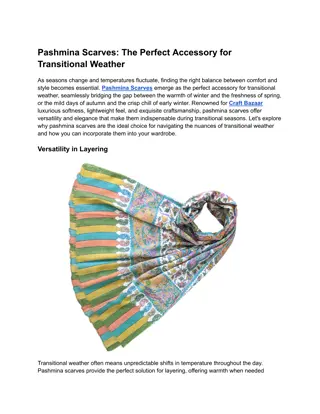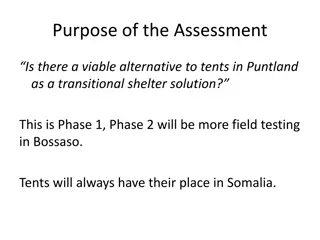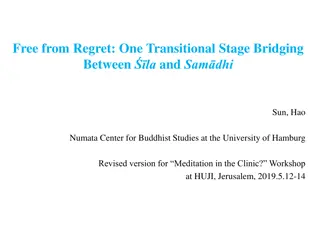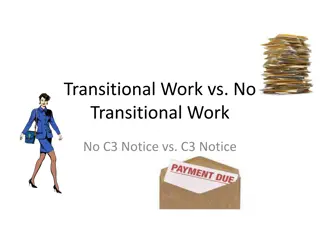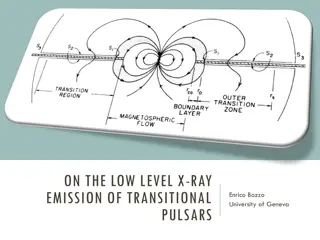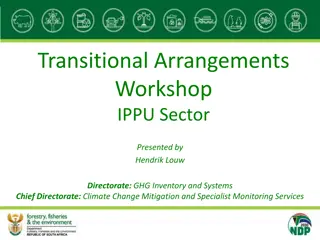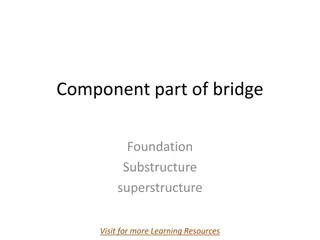Transitional Play Foundations & Key Takeaways
The key elements of transitional play including zone exits, possession, forecheck pressure, and more. Learn about the importance of possession in turning zone exits into successful entries and discover insights on exit direction and behavior across periods.
Download Presentation

Please find below an Image/Link to download the presentation.
The content on the website is provided AS IS for your information and personal use only. It may not be sold, licensed, or shared on other websites without obtaining consent from the author.If you encounter any issues during the download, it is possible that the publisher has removed the file from their server.
You are allowed to download the files provided on this website for personal or commercial use, subject to the condition that they are used lawfully. All files are the property of their respective owners.
The content on the website is provided AS IS for your information and personal use only. It may not be sold, licensed, or shared on other websites without obtaining consent from the author.
E N D
Presentation Transcript
Establishing Foundations of Transitional Play ALEX NOVET @ALEXNOVET RITHAC OCTOBER 21, 2017
Key Takeaways (tl;dl) Passes are the ideal zone exit, but carry outs are almost as good 1 On the breakout, possession is key 2 3 On the forecheck, pressure is key 4 We have a lot more to learn
Agenda Neutral Zone Tracking 101 Zone Exits Smorgasbord Neutral Zone Transitions
A Brief Intro to Neutral Zone Play Zone Exit Zone Entry Zone Transition
Zone exits are a trackable event with distinct quantitative results 45,000 Number of Exits Tracked Dump & Recover Carry 30,000 Icing 15,000 Dump and Lose Pass No Exit - Failure Exit without Possession Exit with Possession
Our judgment of zone exits should include the next entry
Agenda Neutral Zone Tracking 101 Zone Exits Smorgasbord Neutral Zone Transitions
The key to turning a zone exit into an entry is possession % of Exits Leading to an Entry If the exiting team recovers the puck after a dump-out, their success rate rises to 87% 89% 87% 19% Carry Out Pass Out Dump Out
Exits that start in the center of the zone are more likely to maintain possession Exit Direction Once the exit type occurs, there s no further difference in success rate Left Share of Exits Attempts by Direction Center Right 36% 30% 30% 26% 25% 25% 21% 20% 19% 13% 12% 12% 8% 8% 4% 4% 3% 3% Carry Pass Dump and Recover Dump and Lose No Exit Icing
Exit behavior is almost identical across periods Share of Exits Attempts by Period Period 1 2 29% 3 28% 28% 28% 27% 26% 19% 19% 18% 16% 14% 14% 8% 7% 7% 3% 4% 3% Carry Pass Dump and Recover Dump and Lose No Exit Icing Exit pace and success rate are also nearly identical across periods
Pressure has a preposterously large impact on what type of zone exit occurs (or doesn t) Share of Exits Attempts by Pressure Exit Pressure? No Yes 38% 35% 34% 25% 22% 13% 8% 7% 7% 4% 4% 3% Carry Pass Dump and Recover Dump and Lose No Exit Icing
Pressuring zone exits continues to exert a small influence on carries in the neutral zone % of Exits Leading to an Entry Success Rate No Pressure Pressure 90% 87% 87% 75% 20% 18% Carry Out Pass Out Dump Out
Teams that dump the puck more often don t seem any better at recovering it
Time to Transition Neutral Zone Tracking 101 Zone Exits Smorgasbord Neutral Zone Transitions
Exits with possession lead to entries with possession, and therefore more shots Zone Entry Carry-In %, by Preceding Exit Type 53% 49% 44% Pass Out Carry Out Zone Exit Type Dump Out
While there are sample size limitations, speed does not seem to impact shots 0.8 Occurrence Per Entry 0.6 Shots Per Carry Shots Per Dump-In 0.4 Goals Per Carry 0.2 Goals Per Dump-In 0.0 0 1 2 3 4 5 6 7 8 9 10 11 12 13 14 15 16 17 18 19 20 Seconds Between Exit and Entry
This transitional data gives us a new look at team style and results Warning: Probably not repeatable





